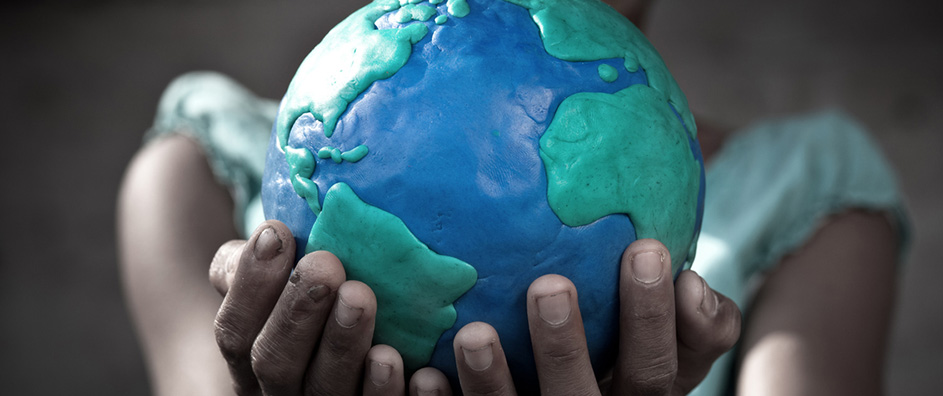In the contemporary landscape of societal upheaval and existential uncertainty, the quest for tranquility has become increasingly imperative. Many individuals grapple with feelings of anxiety and disarray, often seeking solace in various philosophies and spiritual traditions. The Baha’i Faith, with its profound emphasis on unity, justice, and the intrinsic worth of every human being, offers compelling insights into how one can cultivate an enduring sense of peace. The teachings of Baha’u’llah illuminate pathways for personal and communal harmony, engendering a deeper understanding of safety amidst disorder.
At the heart of Baha’i teachings is the principle of oneness—both of humanity and of God. This doctrine posits that the myriad divisions that plague societies, whether rooted in nationality, religion, or culture, are not only superficial but detrimental to collective well-being. Embracing the oneness of humanity invites individuals to transcend parochial perspectives, fostering an atmosphere of empathy and cooperation. In such a milieu, the propensity for conflict diminishes, as people begin to recognize themselves in others, cultivating a sense of belonging that is fundamental to feeling secure in an unpredictable world.
Moreover, the Baha’i perspective on justice is critical in addressing the systemic inequities that contribute to societal unrest. Justice is framed not merely as a legalistic concept but as a moral obligation that binds individuals to each other. The Baha’i teachings urge adherents to advocate for both social and economic justice, emphasizing the importance of equity in ensuring that all individuals have access to opportunities and resources necessary for their well-being. When justice prevails, a foundation for peace can be established, allowing for a more serene existence even amidst chaos.
In conjunction with justice, the Baha’i Faith champions the power of collective consultation. This practice encourages open dialogue and the sharing of diverse viewpoints, fostering a community ethos where every voice is esteemed. When individuals engage in constructive conversations, they forge connections that help assuage feelings of isolation and vulnerability. The Baha’i model of decision-making not only facilitates problem-solving but also nurtures trust and solidarity among community members. In times of crisis, such collective efforts provide a safety net that can mitigate personal and communal distress.
As individuals endeavor to navigate the tumultuous waters of life, personal spiritual practices derived from Baha’i teachings are invaluable. Prayer and meditation serve as vital tools for fostering inner peace. Regular engagement in these practices nurtures a direct connection with the divine, fostering resilience against external turmoil. The Baha’i writings stress the transformative power of prayer—it is through prayer that individuals can seek comfort, guidance, and strength. In an increasingly frenetic world, the quietude of the soul becomes a sanctuary from external noise.
Furthermore, the concept of detachment espoused by Baha’i teachings serves as an important principle for managing life’s vicissitudes. Detachment, when approached correctly, does not connote a withdrawal from life or an avoidance of responsibility; rather, it is the conscious choice to prioritize spiritual over material aspirations. This perspective empowers individuals to remain steadfast in the face of adversity, providing a sense of equilibrium that fosters safety. By learning to navigate life with a focus on higher purposes, individuals can find stability amidst the chaos that often pervades their surroundings.
Though the teachings emphasize individual growth, the Baha’i Faith also underscores the importance of service to humanity. Participating in acts of service not only cultivates selflessness but also creates tangible bonds within communities. Through volunteerism and charitable actions, individuals can contribute to the well-being of others, generating a reciprocal sense of safety and belonging. When one actively engages in uplifting others, it not only promotes social cohesion but also reinforces the notion that collective efforts yield a more secure environment for all.
Moreover, education holds a preeminent place in the Baha’i paradigm. A well-informed populace is better equipped to tackle the complexities and challenges of modern living. Education fosters critical thinking, empathy, and a sense of responsibility towards one another. When individuals are educated, they become aware of the interdependent nature of their existence, leading to greater collaboration in addressing societal issues. With enlightened minds, communities are more adept at cultivating environments that prioritize peace and safety.
Ultimately, the Baha’i approach to finding peace in a disordered world combines personal growth, social engagement, and a commitment to justice, all woven together by the thread of unity. As individuals embark on their own journeys toward tranquility, they can draw upon the rich repository of Baha’i teachings to guide them. By embodying these principles, each person not only nurtures their own peace but contributes to the collective harmony of humanity, thus ensuring a safer and more just world for future generations.
In conclusion, the quest for peace in an increasingly chaotic world is both a personal and communal endeavor. The Baha’i Faith offers an intricate framework for embracing oneness, promoting justice, engaging in collective dialogue, practicing spirituality, fostering detachment, serving humanity, and prioritizing education. Together, these tenets create a robust platform for navigating the complexities of life, inviting individuals to turn chaos into an oasis of calmness and security. As one integrates these teachings into their daily existence, the promise of a more harmonious world becomes not just a lofty ideal, but a tangible reality.
